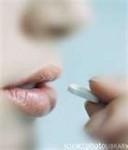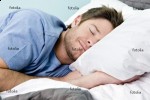 If you are looking for cheap Chinese herbs you won’t find them here. Sorry, but I refuse to buy cheap quality raw materials for my products. Why? Well like just about anything, you get what you pay for. So if you don’t mind having heavy metals and bacteria in your Chinese herb products then go ahead… buy those cheap ones.
If you are looking for cheap Chinese herbs you won’t find them here. Sorry, but I refuse to buy cheap quality raw materials for my products. Why? Well like just about anything, you get what you pay for. So if you don’t mind having heavy metals and bacteria in your Chinese herb products then go ahead… buy those cheap ones.
If you want to know your herbs are tested for contaminants they keep reading. You are in the right place.
But how do you know what’s good and what’s not. First, find out who is the manufacturer or processor of the herbs. When you buy drugs you are told who makes it. When you purchase fruits and vegetables labels tell you the processor and country of origin. When you buy herbs, a product you plan on ingesting, the rule should be the same. If a seller is not telling you where the herbs are processed and by whom, don’t buy them from these companies. Don’t be fooled, if the information is missing from the website, it’s missing for a reason.
I offer a free report titled “What you need to know before purchasing Chinese herbs”. It’s available on our home page and it’s FREE! Get educated, Chinese herbal remedies are offered all over the internet cheap for a reason. Because cheap Chinese herbs are cheap quality and not worth the money you are paying for shipping.
We are completely transparent about our manufacturer our testing and our finished products. Watch our 3 minute factory tour and see how our herbs for sleep, PMS Relief, and Menopause are processed in our pharmaceutical factory.
Look for lot numbers and expiration dates on every product. Lot numbers can be traced to batches of herbs and with our products correspond to “COA’s or Certificates of Analysis which detail all the testing and list quality assurance numerical standards of each test performed. Many herbal companies do not have the high tech equipment or resources to perform COA’s. Check with the manufacturer and ask at the retail store where you purchase herbs if they are requiring COA’s from their suppliers.
We guarantee everything we sell and we guarantee our herbs are pure, unadulterated botanicals with no fillers and nothing artificial. Ask the other guys who sell herbs cheap if they will make that guarantee.



 Menopause symptoms such as hot flashes, night sweats, irritability, brain fog and other symptoms seem to be considered the norm for women over the age of 50, yet this is not true for women around the globe. Researchers from the Department of Integrated Health at Westminster University polled 1,000 British women ages 45 to 55 and compared their answers to those of women from the U.S., Canada, Japan and China. The conclusion was that Japanese and Chinese women suffer the least amount of menopause symptoms. British women suffer the most and Americans are somewhere in between.
Menopause symptoms such as hot flashes, night sweats, irritability, brain fog and other symptoms seem to be considered the norm for women over the age of 50, yet this is not true for women around the globe. Researchers from the Department of Integrated Health at Westminster University polled 1,000 British women ages 45 to 55 and compared their answers to those of women from the U.S., Canada, Japan and China. The conclusion was that Japanese and Chinese women suffer the least amount of menopause symptoms. British women suffer the most and Americans are somewhere in between. Dear Friends, Moms, Sisters, Daughters, Aunts & Grandmothers,
Dear Friends, Moms, Sisters, Daughters, Aunts & Grandmothers,

